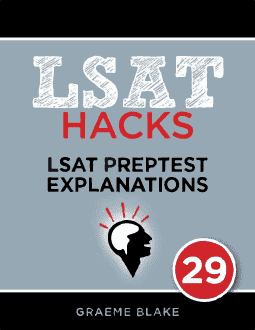QUESTION TEXT: In the decade from the mid-1980s to the mid-1990s…
QUESTION TYPE: Paradox – Exception
FACTS: Downsizing affected corporate job security in the 1980s and 1990s. Yet in 1984 58% of employees said they felt secure and in 1994 55% said they felt secure. (The percentage barely changed despite a long period of downsizing.)
ANALYSIS: This can be a hard question. It shows why it is important to keep in mind exactly what the stimulus is talking about: people’s perception of how safe their own jobs are. The jobs of other people are irrelevant (answer choice B.)
___________
- The survey sample was biased in favor of companies where few people were at risk. This helps.
- CORRECT. The employees were asked about how secure their own jobs were. This talks about the jobs of others. It’s irrelevant.
- This shows that people already felt insecure and weren’t surprised by the downsizing.
- This means that in 1984 most of the bad stuff hadn’t happened. Then by 1994 it had been nine years since bad stuff happened. So people could feel optimistic again.
- So the downsizing would have made them more pessimistic but the general mood made them more optimistic. The effects balanced out.


Why is C wrong? The paradox is that they felt secure in their job security even though the mergers were seeming to undermine the job security. All C says is that they anticipated the downsizing in jobs, but that should not make them feel more secure in their job security. Someone please explain this.
If you anticipate layoffs, that should make you feel less secure about your job. You’re being told a lot of people at your workplace will lose their jobs, and that could include you. That’s just common sense.
So that explains equal confidence in both periods. In 1984 people had feared layoffs for years. In 1994 they had experienced others being laid off for years.
Note: This is an old comment but I wanted to clarify the point.